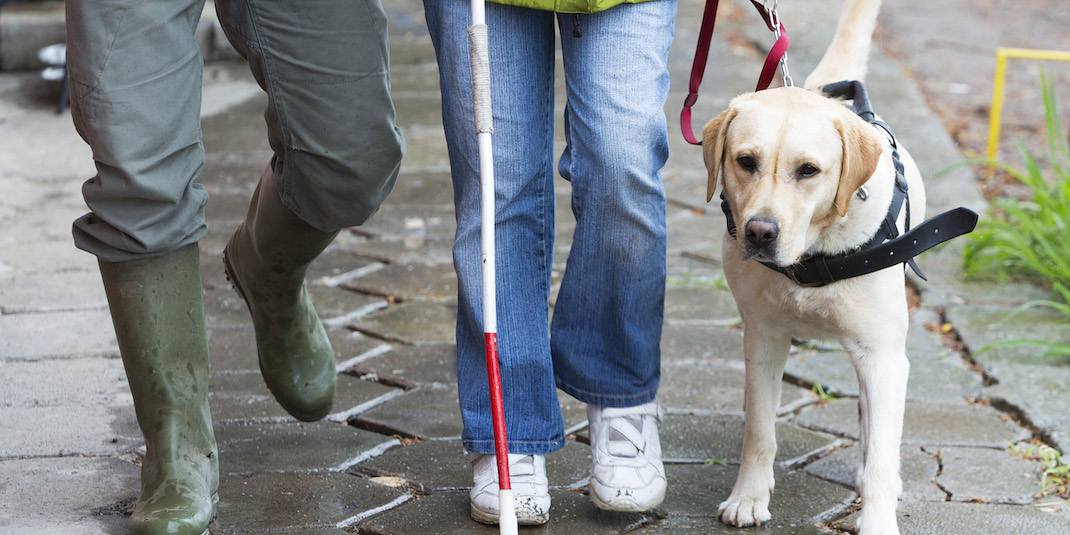MedEd Connections Resource Guide: Blind and Visually Impaired (B/VI)
What Are Additional Skills My Child Needs to Learn?

In addition to Ohio’s Learning Standards (both regular and extended standards), there is a recommended, but not required, Expanded Core Curriculum (ECC) suggested for students who are blind or visually impaired (B/VI). States such as Texas have developed guidance documents for use of the ECC and have requirements for implementation. Currently, Ohio does not have a specific guidance document related to the ECC or any requirement to implement this suggested curriculum. This special curriculum addresses skill sets that children who are B/VI often miss because they do not have full access to visually-conveyed information, and therefore, do not learn through visual observation, or incidental learning. This access to information through the senses shapes a child’s experiences and store of knowledge. Some of that incidental learning is missed, and therefore, may need to be explicitly taught. The ECC contains, what those in the sensory disabilities field feel are critical components that address the needs of the whole child for students who are B/VI. The ECC can be included as a learning goal in the child’s individualized education program (IEP) if that is determined appropriate by the team.
A teacher of students with visual impairments (TVI), certified orientation and mobility specialist (COMS), and other members of the school team work with educators and families to help include components of the ECC into daily instruction. Families play an important role in supporting these skills so that they are transferred from school to home.
Expanded Core Curriculum (ECC): B/VI
The Expanded Core Curriculum (ECC) for learners who are B/VI addresses areas that are either not typically taught or require specific and direct instruction. The tool is designed for teachers and TVIs to assist with program development and to be a resource for IFSP (individualized family service plan) and IEP (individualized education program) team members. There are nine content areas addressing academic and social learning needs.
- Compensatory or Functional Skills: Skills needed to access the general curriculum. This may consist of literacy related areas, such as braille, handwriting skills, low-vision devices, and tactual or object symbols; or communication related areas including alternative communication systems, such as tactile or object-oriented systems; and also specialized instruction, such as numerous methods to represent spatial, environmental, temporal, and/or body concepts, including those too small, large, or dangerous to be experienced directly.
- Sensory Efficiency: Students are likely to need structured and systematic instruction in visual, tactual, and auditory skills in order to benefit from other areas of the general curriculum. For example, it is useful for people who are B/VI to be able to feel different textures under their feet, such as gravel, grass, or concrete to provide clues about their surroundings; or to feel braille while in an elevator or locating a restroom.
- Orientation and Mobility: Skills in this area include safe and efficient travel throughout the environment.
- Social Interaction Skills: Visual impairments can socially isolate a student and affect his or her ability to benefit from various non-verbal social cues. A speech language pathologist (SLP) can support your child’s social communication skills.
- Assistive Technology (AT): High- and low-tech AT strategies may be critical for students to access the general curriculum and enhance communications. AT skills are also important for life outside of school, and for future employment.
- Independent Living Skills: Students with visual impairments are likely to need structured instruction in personal, financial, and/or home-management skills.
- Recreation and Leisure Skills: Students need to be exposed to recreation and leisure activities, as exposure may not happen incidentally. Students should be made aware of modifications needed to make an activity accessible.
- Career Education: Students need to be taught about the various types of career options and the skills necessary to achieve personal goals.
- Self-Determination: Self-determination includes decision-making, self-advocacy, and individual responsibility.
Note: Derived from Texas School for the Blind ECC
The Hadley Institute for the Blind offers courses that may address some ECC skills.
Want more ECC resources?
See Expanded Core Curriculum Resources.